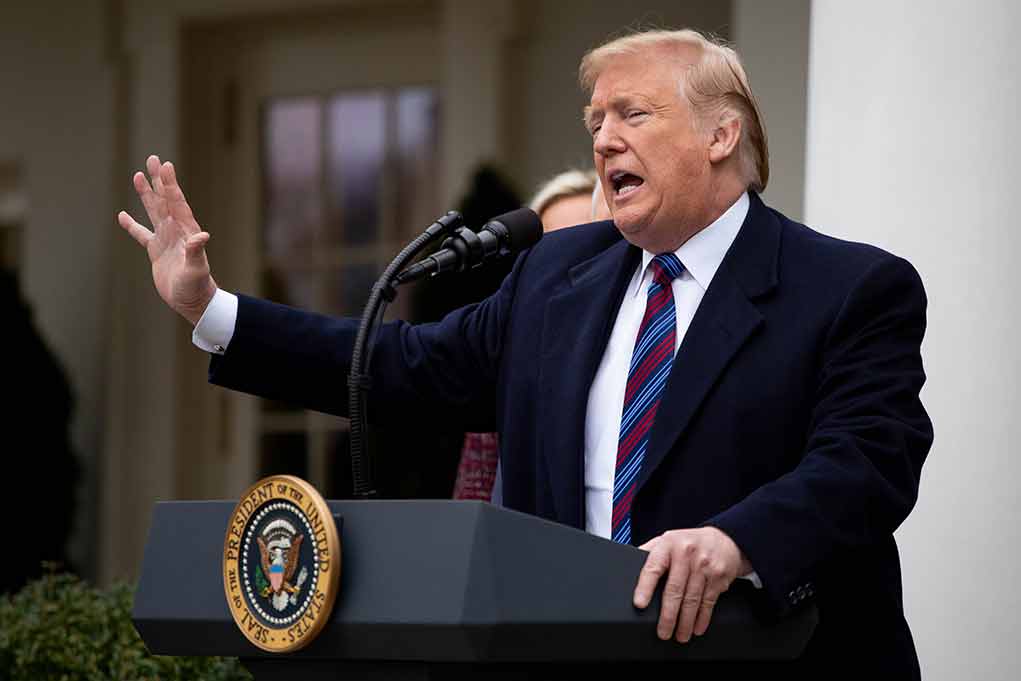
In a decisive maneuver challenging the autonomy of federal regulatory bodies, President Trump dismissed two Democratic members of the Federal Trade Commission, sparking a legal confrontation that may redefine executive power.
Key Takeaways
- President Trump removed FTC Commissioners Alvaro Bedoya and Rebecca Kelly Slaughter, intensifying efforts to control independent agencies.
- The dismissals raise legal issues and a potential shift in managing regulatory bodies, which could impact executive governance.
- Bedoya and Slaughter contend their removal violates Supreme Court precedents protecting FTC independence.
- The White House argues presidential power under Article II of the Constitution allows such dismissals.
- Consequences extend beyond the FTC, calling into question the autonomy of other independent regulators such as the Federal Reserve.
FTC Leadership Shake-Up
President Trump has triggered a storm by relieving FTC’s Democratic Commissioners Alvaro Bedoya and Rebecca Kelly Slaughter of their duties. Their expulsions, perceived as unprecedented, provoke a reevaluation of presidential authority over independent agencies. With allegations of illegal dismissal looming, this episode may redefine the jurisdiction of executive governance, possibly impacting the FTC’s future operational effectiveness.
Appointees to the FTC are traditionally aligned with the president’s party, experiencing a variable tenure lasting seven years. Bedoya and Slaughter’s early departures suggest strategic political reshuffling, potentially aligning the FTC more closely with presidential directives. This move is supported by FTC Chair Andrew Ferguson, further entrenching Trump’s influence over this crucial regulatory body.
Pres Trump sets up what will be a seminal Supreme Court case by dismissing two Democratic FTC Commissioners leaving just two Republicans. This is in clear contravention to a "1935 Supreme Court case known as Humphrey’s Executor v. United States, [which] upheld job protections… pic.twitter.com/o3U93dpiB6
— Neil Sethi (@neilksethi) March 19, 2025
Legal Battle and Implications
The ousted commissioners claim unlawful firing, citing Supreme Court precedents that they believe safeguard FTC autonomy against arbitrary executive actions. Legal experts suggest that this dispute could spark judicial review, setting a landmark precedent on the separation of powers, which historically insulates agencies like the FTC from executive overreach.
This legal discord may influence governance by reshaping perceptions of executive reach into autonomous bodies, complicating future regulatory landscapes. Political analysts predict extended legal battles ahead, with potential implications for diverse nonpartisan entities like the Federal Reserve.
Potential Backlash and Political Consequences
The dismissals, seen as an attempt to stack the commission with loyalists, open the door to possible backlash by future administrations. Critics, including former FTC members, voice concerns over reduced institutional independence and favoritism toward major corporations, ultimately threatening consumer protections against monopolistic practices.
As this unfolds, Trump’s executive orders draw growing scrutiny from the left, potentially establishing a blueprint for future presidential power structures that might initially favor him but could backfire under a different administration. Observers remain alert to these developments, as they hold significant implications for the balance between executive authority and regulatory independence.
Sources:
- Trump fires 2 Democrats on the Federal Trade Commission, seeking more control over regulators | AP News
- White House pledges to defend FTC firings in court
- Trump fires both Democratic FTC commissioners, setting stage for legal brawl











